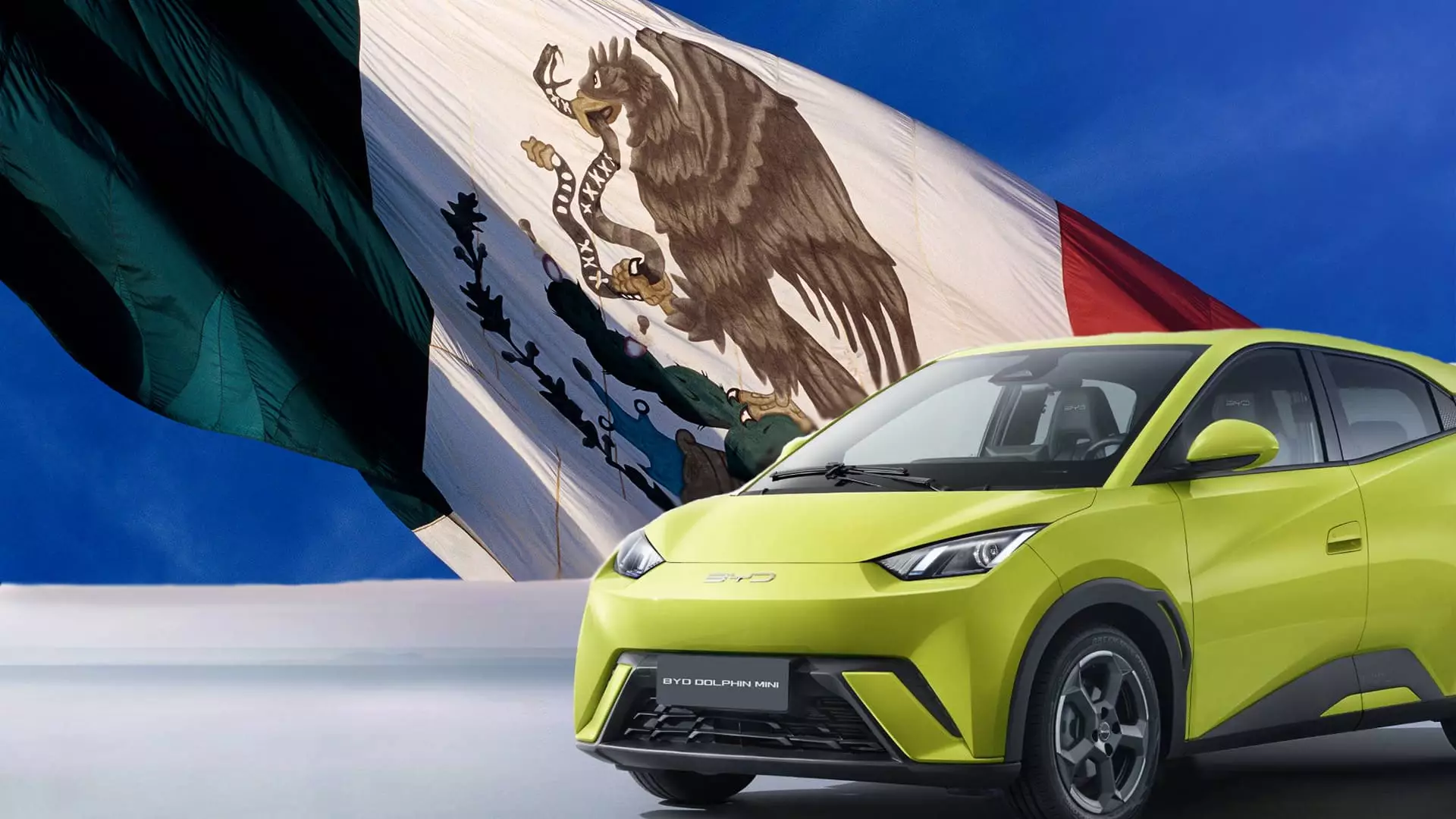Mexican consumers, drawn by affordable prices, have embraced Chinese electric vehicles (EVs) as an alternative to traditional car brands. Last year, China became the top automobile supplier to Mexico, exporting $4.6 billion worth of vehicles to the country. This trend has not gone unnoticed by officials in Washington, who are wary of Mexico potentially serving as a “backdoor” for Chinese EVs to enter the U.S. market.
Companies like BYD are eyeing Mexico as a strategic location for EV production. By setting up factories in Mexican states such as Durango, Jalisco, and Nuevo Leon, Chinese automakers are looking to take advantage of the country’s free trade access to the American market. A BYD plant in Mexico is projected to create approximately 10,000 jobs, providing a much-needed economic boost to the region.
Concerns Over Trade Restrictions Circumvention
Under the United States-Mexico-Canada Agreement (USMCA), goods manufactured in Mexico or Canada and sourced locally can be exported to the U.S. without facing tariffs. However, U.S. officials fear that Chinese automakers could exploit this loophole to bypass trade restrictions and gain entry into the American market. This potential “circumvention” tactic poses a threat to U.S. auto companies, as Chinese EV makers could undercut American manufacturers with lower production costs.
Protectionism and Market Dynamics
President Joe Biden’s announcement of a 100% tariff on Chinese EVs reflects the U.S.’s efforts to protect its emerging electric vehicle industry. With American automakers still in the early stages of scaling up their EV production, there are concerns about the impact of foreign competition on the domestic market. The delicate nature of the EV industry, often referred to as an “infant industry,” requires safeguards to ensure its growth and competitiveness in the global market.
The growing presence of Chinese EVs in Mexico presents a dilemma for the Mexican government, torn between maintaining its crucial relationship with the U.S. and fostering foreign investment from China. As pressure mounts from the U.S. to curb Chinese influence in the region, Mexico faces the challenge of navigating its economic interests while treading cautiously in a complex geopolitical landscape.
The influx of Chinese electric vehicles into Mexico has raised concerns for U.S. officials who fear the potential ramifications for the American auto industry. As Chinese automakers seek to capitalize on Mexico’s free trade agreements to gain access to the U.S. market, the delicate balance between economic growth and market protection becomes increasingly precarious. The future of the electric vehicle industry in North America hinges on the ability of policymakers to navigate these challenges effectively and ensure a level playing field for all stakeholders involved.

